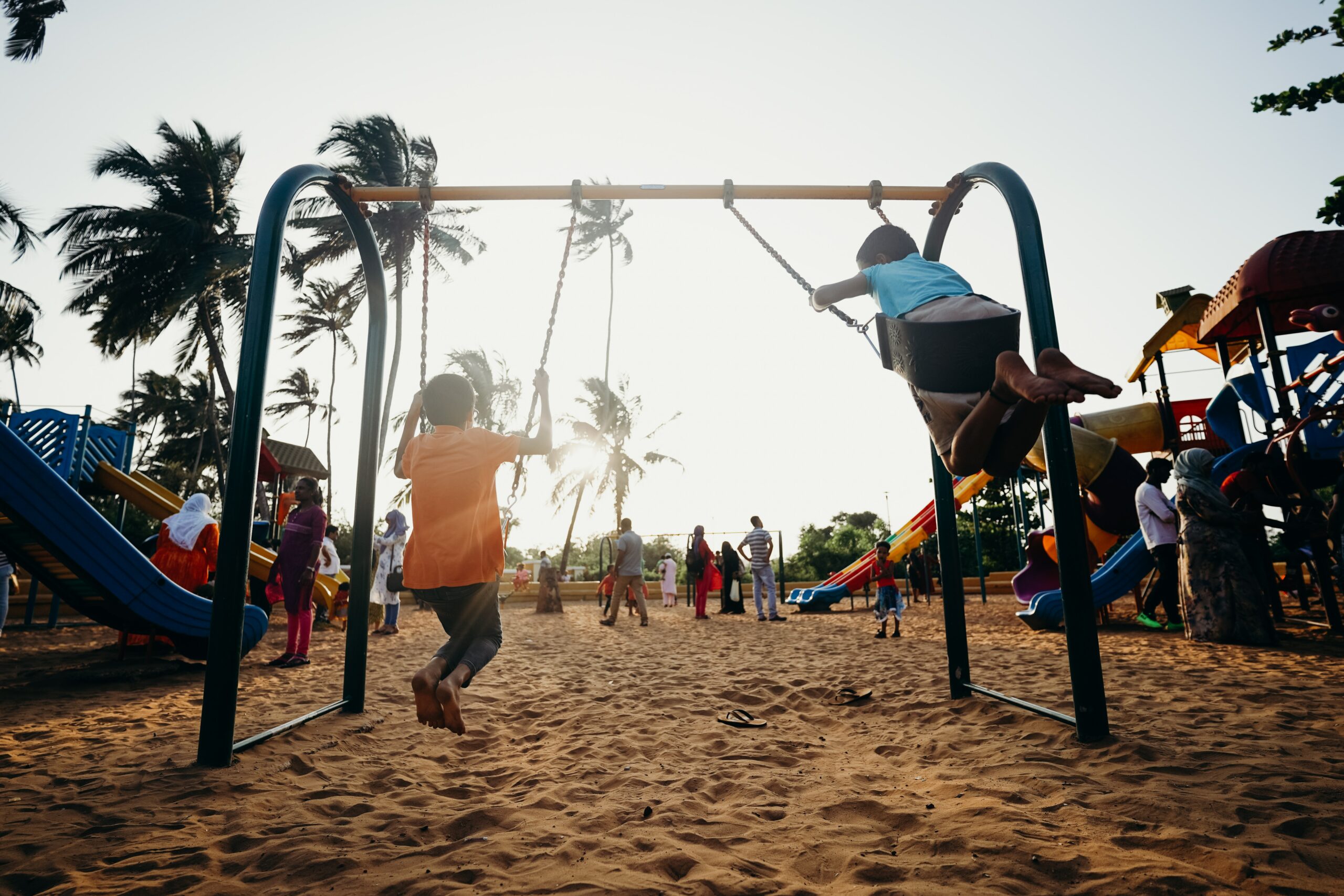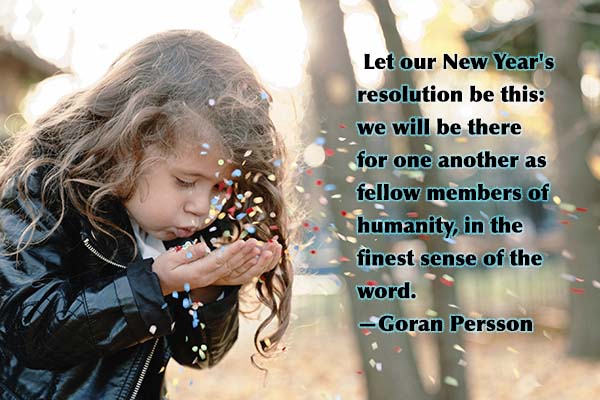
I remember climbing the mango tree that grew behind my building as a child. I lived in a large metropolitan city and would beg my grandma to let me play behind the building with my friend. With the slightest nod of her head, I would squeal with excitement and fly down the stairs to the fourth floor where my best friend lived. I would ring and knock until I could, once again, beg whoever answered to let her play with me. Again, with the slightest nod, we both arrived at the ground floor, barely touching a step on the way down.
I have the greatest memories of my childhood climbing that mango tree with just a salt shaker and my friend. We would sit and talk, play, and eat fresh mangos straight from the tree. Now, 30 years later, I can still recall and feel the pleasure of that time in the tree. I can still smell the sweet ripe fruit and recall unexplainable and seemingly unimportant details from those cherished experiences.
I know each of you has your own unique and special memories of playing as a child. You can recall an amazing time when you rode your bike on the street, rolled down a grassy hill, jumped into a pile of leaves, or built a sandcastle at the beach. I grew up in Caracas, Venezuela, and I spent countless hours and days playing with my friends in the street, climbing trees, and even walking every afternoon to the bakery with my grandma to buy bread for dinner. These memories are so precious to me, just as your unique childhood play experiences and memories are precious to you.
But we weren’t just playing, we were learning, and we were learning a lot!
There is something amazing about play. When you experience pleasure, you become more driven to repeat that activity. And the more we repeat it, the more opportunities we must master it. With mastery of anything, from the most basic skill to the most complex, we experience self-accomplishment and the pride and individual confidence that result from it. such as creativity, abstract thought, prosocial behavior, and expressive language”.
Playing is a critical part of our learning process. But play has to be fun. If something is not fun, it’s not play.
Let’s look at why play is so critical to learning and cognitive development. Play serves as a crucial mechanism that enables the brain to develop neurological systems that play a key role in cognitive awareness, improved learning, and physical, social, and emotional well-being. Gaskill and Perry (2014), in their article “The Neurobiological Power of Play,” said that “Developmental theorists generally have viewed play as an essential experiential element of social, emotional, physical, intellectual, and psychological development. The ‘somatosensory’ experiences in some play activities have been viewed as the neurological foundations for later advanced mental skills, such as creativity, abstract thought, prosocial behavior, and expressive language.”
Let’s dive just a bit deeper and investigate what is really happening in the brain when a child is playing. Bruce Perry is a psychiatrist and Founder of the Child Trauma Academy, and through his research, he explains how kids develop through play.
Human brains are super organized, so let’s imagine a staircase in your brain. Our brains start developing on the bottom stair and systematically progress up the staircase. The bottom stair is the BRAINSTEM, which is the basic building block of the brain.
According to Perry, the Brainstem establishes (body) state regulation and is responsible for controlling body temperature, blood pressure, heart rates, sleep, and fear.
To develop the Brainstem and this critical first stair, Perry recommends playing games, such as peekaboo and frequently introducing new and different tactile and taste sensations.
The second stair is the MIDBRAIN, this part of the brain is responsible for the regulation of movement (motor skills) and the sensory integration of our brain. Play that involves gross- and fine-motor skills and music is well suited to help develop the Midbrain.
The third step in the brain staircase is the LIMBIC. The Limbic area is all about our emotions. I know many of you are thinking, “Yes, EMOTIONS, tell me more!” It is the Limbic portion of the brain that processes emotions, such as tolerance, belonging, and empathy, as well as how we react to a situa- tion and regulate our feelings. It’s at this level of development that our brains start understanding and comprehending the complex dynamics of relationships and all those social-emotional skills that we need to live and function in society.
Once again, play is a critical component in the development of the brain’s Limbic system. Play that involves taking turns, sharing, winning, and losing will all work together to promote the development of this step in the brain staircase.
Our final level in the staircase is the CORTICAL area of the brain. As you might imagine, this is the most complex stage of development, where we see the child engaging in abstract thoughts, creativity, language, and morality. It’s at this stage that Perry notes that Cortical development is supported by playing complex games, humor, art, books, word games, etc.
So now we’ve reached the top of the brain staircase, and through play, our children have developed the ability to control their emotions and think in the abstract.
But what about executive functioning skills, and where do they come from?
Executive functioning is responsible for several skills that involve working memory, cognitive flexibility, and inhibitory control. Basically, these skills act like our own internal ‘boss’ and tell us what to do. The ‘boss’ should be able to help us pay attention, keep and recall information, organize, regulate our emotions and internal clock, and keep track of what we are doing.
The Center on the Developing Child at Harvard University says, “These skills are crucial for learning and development. They also enable positive behavior and allow us to make healthy choices for ourselves and our families.”
The important thing to remember is that we were not born with the ‘boss’; we must learn, practice, and develop these executive functioning skills throughout childhood.
These (executive function) boss’ skills live in the prefrontal cortex of the brain, and studies show that they begin to develop as early as age 3 and will normally continue to develop through the age of 21.
Perry and Baylor said in their research, “Curiosity, Pleasure, and Play: A Neurodevelopmental Perspective,” that “while enjoying their play, children can acquire a wide range of interpersonal/social skills, ranging from communication to cooperation. When children argue about who stepped ‘out of bounds’ and agree upon a ‘do-over,’ they are learning how to negotiate, compromise, and work together.”
All the play that we engage in as children, even as a toddler, contributes to the development of strong executive functioning skills— or a really good ‘boss.’
With play being so important for our children, what are we waiting for? Why are we so laser-focused on rigid academic regimes and structured activities? Have we forgotten how to play?
More play time could better serve the academic and social development of our precious tiny humans. Since we now know the importance of play, let’s ask ourselves, as parents and teachers: How can we use play to better promote and foster childhood development? How can we make things more fun? How can we add more play time to our schedule? How can we remember how to play?
As Montessori educators and parents, we know and recognize the importance of playing, but sometimes we forget that play is such a critical part of the learning process and developing effective executive functioning skills.
Maria Montessori said that “play is the work of the child,” and by giving the child the opportunity to play and explore, we help the brain to grow. “Only through freedom and environmental experience is it practically possible for human development to occur” (Montessori, 1967).
So, what have we learned, and what is our takeaway?
If play is so closely related to brain growth and development, and our prefrontal cortex (executive function) ‘boss’ skills are a result of all that playing, then we need to make sure our tiny humans are doing a lot more playing! It’s just that simple. Both in our education system and our own home, we need to implement and promote more playtime.
As Maria Montessori said, “Education is a natural process carried out by the child and is not acquired by listening to words but by experiences in the environment.” Let’s come together as parents and teachers and go out into the world to explore, be curious, and play more!
Reference
Center on the Developing Child (2012). Executive Function (InBrief). Retrieved from www.developingchild.harvard.edu.
Montessori, M. (2016, originally 1949). The absorbent mind. Amsterdam: Montessori-Pierson Publishing.
Perry, B., & Baylor, S. (200-). “Curiosity, Pleasure, and Play: a Neurodevelopmental Perspective.” HAAEYC Advocate, 9-12.






